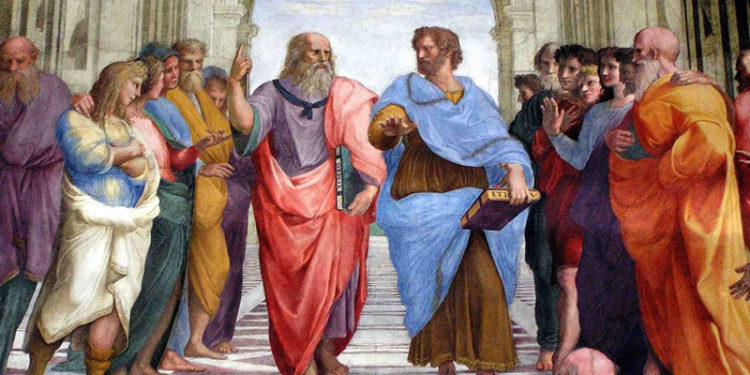Social Combat (5e)

The following are some optional rules I have been working on for goal based social battles for Fifth Edition. I wanted something that would not take much work to learn, so I followed the framework of regular combat. Let me know what you think in the comments below.
Social combat provides gamemasters with an optional way to resolve important social encounters between PCs and their rivals while an audience is present. Social combat blends ability check based social interactions with the structure of combat. These encounters work best to resolve tense situations where physical combat isn’t allowed or best avoided.
Social combat can resolve a number of social conflicts including the PCs confronting a noble who is the secret leader of a cult, defending themselves at a trial, a political debate, or an argument in front of well connected socialites. Social combat encounters take place at galas, the town square, the deck of a ship, the royal palace, and in the courtroom.
Social Combat Goals
When characters are engaged in social interactions they usually have a goal such as learning information or getting out of trouble. The goal of social combat is for key situations that require more than a single ability check. In social combat, the PCs seek to win a debate, embarrass a rival, or simply persuade someone to help them with an audience present.
Social combat requires two rival sides and an audience of at least one creature who can:
- make a ruling (judge or political leader)
- have their opinion swayed (socialites, mob, courtiers)
To win social combat, characters attempt to attain a goal. The following are goals for social combat.
Convince. To attack the viewpoint of your opponent and convince the audience that your opinion is more valid using facts. This can be in the form of a debate, trial, or a heated argument.
Embarrass. To attack your opponents with the goal of embarrassing or discrediting them in front of the audience. This can take the tone of a comedic roast or a scathing attack on their character.
Persuade. To make an appeal to your opponents to end their indifference or hostility towards you and gain their help. This can be in the form of a royal audience or a conversation at a feast.
Running Social Combat
Social combat is run similar to physical combat. The main differences are than rounds are one minute, social combat stats are used, any damage is inflicted only on the emotions, honor, and prestige of the target, and there is no movement.
Social Combat Stats
The following stats are used for social combat.
Society Score. Your base society score is equal to your choice of your Charisma or Intelligence modifier. The following conditions can add additional or take away points from your total society score, at the gamemasters discretion.
- If your character is famous, popular, or has a high renown with the audience, you gain one additional society point.
- If your character is unknown or has a low renown with the audience, you lose one society point. Reasons for low renown could include belonging to a rival faction, being accused of a crime, or having previously lost honor.
- If your character is proficient in any of deception, insight, intimidation, persuasion, or performance skills you gain one additional society point.
Social HP. For social combat your ability to absorb the social attacks of your opponent is reflected by your social hit points.
Social Hit Points = proficiency bonus * society score
Social AC. For social combat your ability to deflect social attacks is measured by your social armor class.
Social Armor Class = 8 + your proficiency bonus + society score
Social Attack Modifier. For social combat your ability to make a social attack is measured by your social attack modifier which is added to any attack rolls you make during social combat.
Social Attack modifier = your proficiency bonus + society score
Social Combat Step by Step
In social combat, a round represents one minute in the game world. During a round, each participant takes a turn. The order of turns is determined at the beginning of a combat encounter, when everyone rolls initiative. Once everyone has taken a turn, the social combat continues to the next round if neither side has defeated the other.
- Determine Participants.Decide who is involved in the social combat encounter.
- Roll initiative. All participants roll initiative, determining the order of participants’ turns. When combat starts, each participant rolls a d20 and adds their society score to the roll.
- Take turns. Each participant in the social combat takes a turn in initiative order. On their turn, they take one action. The most common actions are described in the “Actions in Social Combat” section.
- Begin the next round. When everyone involved in the social combat has had a turn, the round ends.
- Repeat step 1 until the social combat is resolved.
Actions in Social Combat
The following actions are similar to those found in regular combat, but are focused on social interaction.
Attack
When you take the Attack action, you focus your turn on attacking a rival to attain your goal by convincing, embarrassing, or persuading them.
First, you choose an opponent to make an attack against. Second, you make a social attack roll against that opponent by rolling a d20 and adding your social attack modifier against the target’s social AC. On a hit, an attack does 1d4 + your society score.
For example, the PCs are in a heated argument with their rival Baron Lucian Rau and his minions. On Leta’s turn in the initiative order, she rolls a d20 to make an attack roll against Rau. She rolls a 14 and adds her +7 social attack modifier, for a total attack roll of 21 against Rau’s social AC of 18. The attack hits and Leta’s verbal assault does 6 social damage (1d4 + society score), reducing Rau from 24 to 18 social HP.
| Rolling 1 or 20
Being in a tense conversation can see a novice orator rise to the occasion and make a strong point or for an eloquent veteran to flub their words. If the d20 roll for an attack is a 20, the rules are the same as with regular combat. The Attack hits regardless of any modifiers or the target’s social AC and you get to roll an extra 1d4 for social damage. If the d20 roll for an attack is a 1, the attack misses, regardless of any modifiers or the target’s social AC. |
Boost
When you take the Boost action, you focus on supporting the efforts of an ally. To boost an ally, make a DC 10 Persuasion (Charisma) check. If successful, you give social HP to an ally equal to your society score, lowering your own social HP by the same amount. A creature can not gain social HP beyond their maximum social HP.
Cast a Spell
Spellcasters have access to spells and can use them to great effect in social combat. When you take the Cast a Spell action, you can cast a spell your have access to with a casting time of 1 minute or less. The impact of casting the spell should be determined by your gamemaster.
Dodge
When you take the Dodge action, you focus entirely on avoiding social attacks from your rival. Until the start of your next turn, any Attack made against you has disadvantage.
Help
When you take the Help action, the creature you aid gains advantage on its next Attack or ability check, provided that it makes the social attack roll or ability check before the start of your next turn.
Withdraw
When you take the Withdraw action, you voluntarily remove yourself from the initiative order. If you start a turn without any social HP, you must take the Withdraw action. Any attempt by a player to take an Action once they disengage should be ignored by the audience.
| Improvising an Action
When you take your action on your turn, you can take one of the actions presented here, or an action that you improvise. A player should describe what the want to accomplish and roleplay it out before making a roll. If they describe an action not detailed in these rules, the gamemaster should decide whether that action is possible and what kind of roll is needed, if any, to determine success or failure. Gamemasters should lookout for good roleplay and reward it with advantage on the player’s next role. |
Ending Social Combat
Social combat ends when all of the participants on a side have taken the Withdraw action. If there is a time limit, all creatures on the side with the least total social HP remaining will take the Withdraw action.
The fallout of the encounter should be determined by your gamemaster based on how effective the characters were in swaying the audience to their goal. Fallout can come in the form of anything from aid on their quest to imprisonment, depending on their goal and the outcome of the social combat.
Image: Raphael, School of Athens, fresco, 1509-1511 (Stanza della Segnatura, Papal Palace, Vatican)



